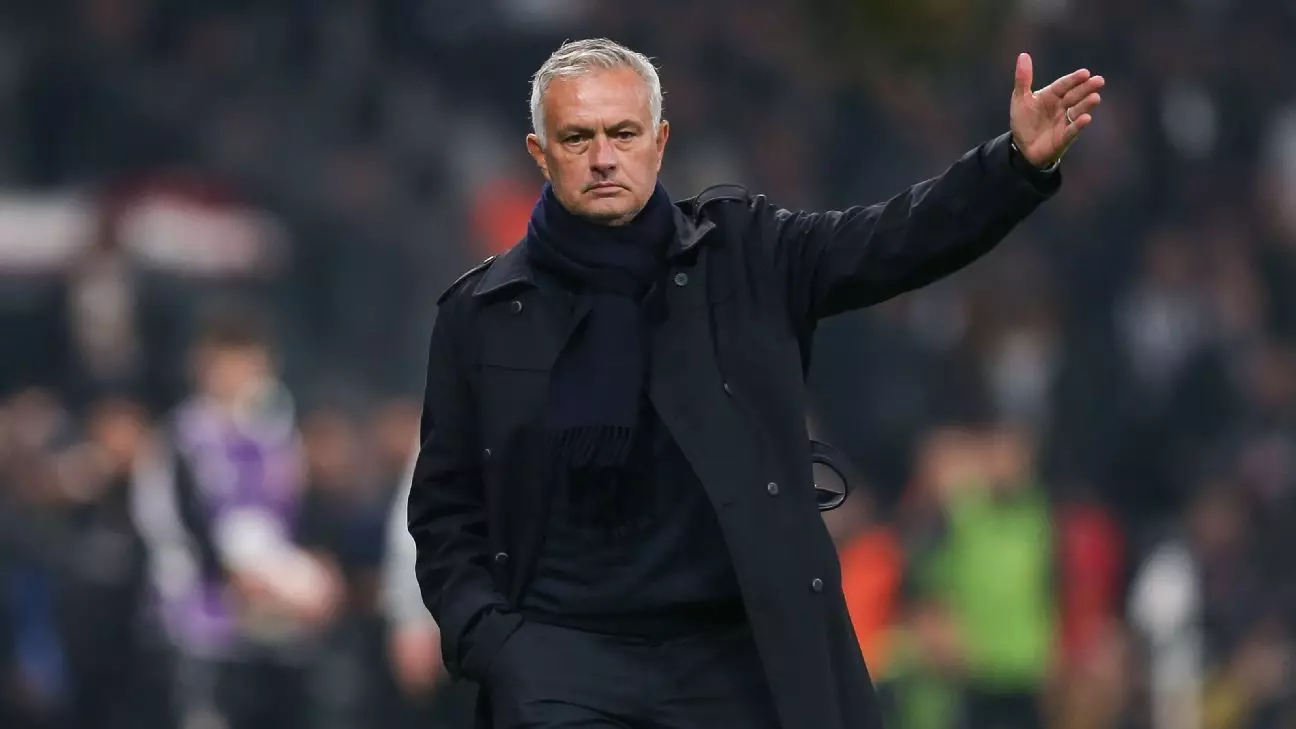In the realm of football, few rivalries have captured the imagination of fans and analysts alike as that of José Mourinho and Pep Guardiola. Their contentious relationship stretches back to Mourinho’s tenure at Real Madrid, where he frequently locked horns with Guardiola during his time at Barcelona. The contrast between their managerial styles and philosophies has always inspired animosity and intrigue. Recently, Mourinho reignited that rivalry through his comments regarding Manchester City and the pervasive issue of financial fair play in football.
Guardiola, known for his charismatic and often provocative demeanor, seemed to take umbrage at Mourinho’s statements, which suggested that Manchester City should face severe consequences if found guilty of financial misconduct. The accusation that Mourinho secretly wishes for City’s relegation struck a chord, as it introduced an element of animosity into what has typically been a strategic and professional rivalry. While Guardiola responded to the jibes from Liverpool supporters with a nonchalant gesture aimed at showcasing his own success, Mourinho’s commitment to the principles of fairness in football cannot be ignored.
Mourinho countered Guardiola’s remarks, emphasizing that his intentions were mischaracterized. He reiterated his passion for fairness in the game, insisting that his passion stems not from personal vendettas but from a desire for balance in football’s playing field. “It’s not true that I want Man City to be relegated,” Mourinho clarified, reflecting a sense of urgency in tackling the inequalities present in football’s financial structure. “I like justice, and many times small clubs are punished by going over budget, while larger teams find loopholes.”
This assertion reveals a deeper fissure in the fabric of modern football: the dire consequences small clubs face against the backdrop of financial misconduct by larger teams. Mourinho voiced frustrations born from his tenure at AS Roma, where he encountered restrictions that seemingly applied exclusively to smaller entities. His critique of “financial sharks” highlights a systemic issue, drawing attention to how powerful clubs manage to sidestep regulations while less fortunate teams face stringent penalties.
While critics may dismiss Mourinho’s remarks as mere posturing, they do tap into a broader dialogue about equity and fairness in competitive sports.
Despite the highlighted tension, Mourinho made clear distinctions between rivalry and personal relationships. He reinforced that, beneath the surface clash of words, there remained mutual respect. “I like Pep a lot, and he knows that,” he said, dispelling notions of personal animosity. Such sentiments are often overlooked in the heated atmosphere of competition, but they serve to remind us that professional rivals can also harbor mutual respect.
In contrast, Guardiola’s comments about his future reaffirm his dedication to Manchester City. He expressed that he is unlikely to manage another club after his contract expires in 2027. Instead, he hinted at the potential of shifting to a national team capacity, implying a yearning for a change but also a recognition of the ‘everyday’ grind that coaching a club entails. Guardiola’s focus obviously remains on executing a vision laid out for City, further solidifying the notion that he is committed to developing the squad without distraction.
The encounter between Mourinho and Guardiola exemplifies the complexity of modern football rivalries, where personal respect intertwines with professional conflicts. In a time when financial inequalities stir debates within the sport, the comments from both managers shine a light on serious ramifications for football.
Ultimately, their rivalry may extend beyond personal interactions; it touches on critical issues of fairness and integrity in football. Such discussions must be held at the forefront, ensuring that the sport can evolve into a more equitable arena for all participants. Thus, while they may spar verbally, Mourinho and Guardiola share a collective responsibility as leading figures in football to advocate for change, ensuring that justice prevails both on and off the pitch.

